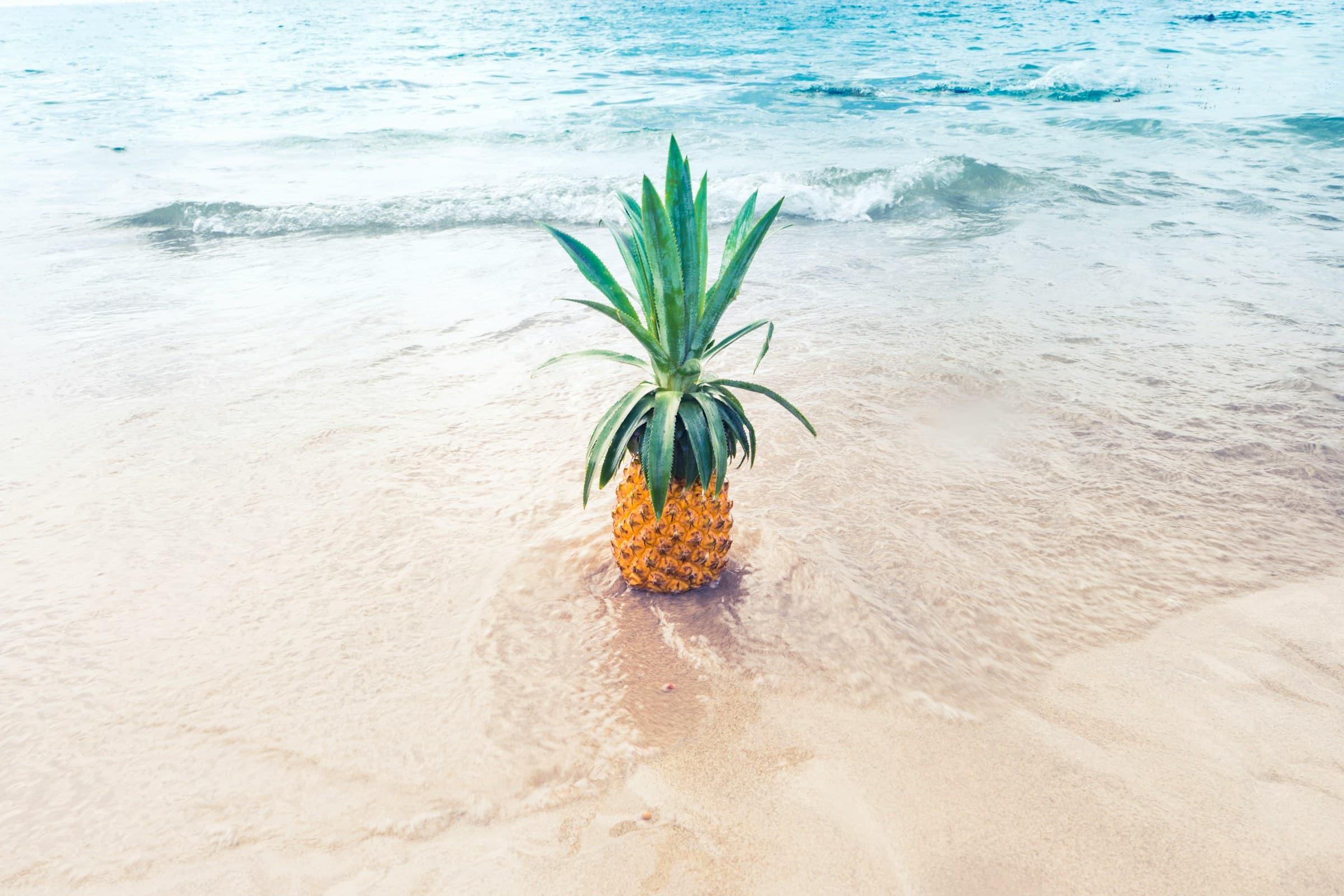Pineapples are a delicacy in most households. It's often used in cocktails, pies, and as a refreshing snack on hot summer days. It's rich in vitamins C and B, minerals, and fiber. But, can cats have pineapple?
Are Pineapples Good for Cats?
Pineapples are a nutrient-packed fruit with lots of vitamins and minerals and cats can safely enjoy them.
Although pineapples and cats are a safe combination, they should be given in moderation. Since cats are carnivorous animals, their core diet should mainly consist of animal proteins and meat.
Pineapples should be treated as an occasional treat for your cat since they're getting all the necessary nutrients from their core diet.
The benefits of pineapples for your cat include:
Folate
Pineapples contain folate which aids in the production of red blood cells.
Vitamin B6
Vitamin B6 in pineapple helps with the absorption of nutrients.
Fiber
Pineapples are rich in fiber which is good for your cat's digestive system.
Low Calories
Pineapples have low calories which may be good if your cat is trying to lose weight. As a treat, you can indulge your cat without feeling guilty about extra calories.
Magnesium
Magnesium helps to boost your cat's muscular structure and the overall health of their blood.
When Is Pineapple Bad for Cats?
Although pineapple is a safe fruit for your cat, moderation is key. Your cat should eat pineapples in small quantities. Pineapples contain sugar which will be harmful to your cat if consumed in large quantities. The excess sugar can result in an upset stomach for your cat, leading to diarrhea and vomiting. The excess fiber can lead to gas and bloating. Excess sugar can also lead to diabetes, obesity, or dental issues in the long term.
Pineapples are rich in vitamin C. However, cats don't need vitamin C since they can produce it on their own. Unlike humans who get vitamin C from their diet, cats don't. Excess vitamin C can result in long-term health complications for your cat. The excess vitamin C will result in unnecessary buildup in their system leading to kidney complications or bladder stones.
Cats should only be fed fresh, raw pineapples. Don't give your cat pineapple leaves, rind, skin, and thorns. These parts are hard for your cat to digest. Eating them can result in intestinal blockage.
Avoid giving your cat canned pineapples. These contain added sugars and preservatives which are toxic to cats. Also, don't feed pineapple pie to your cat. These contain additional toppings like onions that are harmful to cats.
Your cat shouldn't eat unripe pineapples. It's harmful to them and can lead to chronic diarrhea and vomiting.
Do Cats Actually Like Pineapple?
Not all cats are pineapple cat. While some may enjoy it, others won't. It boils down to individual preference. Although cats are curious by nature, they're particular about their food compared to dogs.
If your cat enjoys a slice of pineapple, indulge them. However, don't force your cat to eat them if they don't want to. Keep in mind that cats don't have sweet taste receptors. Even though they may get curious about the fruit, its taste may be lost on them. Also, a cat's digestive system isn't designed to process fruits and vegetables like humans. Their system is designed to process meat and animal proteins. It's crucial to keep the quantity of pineapple consumption at a minimum to avoid digestive complications.
Feeding Your Cat Pineapple
Is pineapple toxic to cats? No. Your cat can safely enjoy a slice of pineapple.
To feed your cat pineapple:
Wash the pineapple.
Peel the skin. Remove the rind, thorns, and leaves.
Cut into small sizes and give your cat.
If your cat is eating pineapple for the first time, look out for any allergic reaction.
Conclusion
Can cats have pineapple? Yes. While your cat can safely enjoy a piece of pineapple, it shouldn't form part of their core diet. For your cat to thrive, their main diet should consist of animal protein and meat only.
Frequently Asked Questions
Can cats have fruit?
Yes. But it shouldn't be part of their main diet. Safe fruits for your cat include bananas, watermelon, strawberries, apples, and mangoes.



